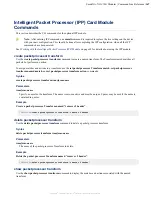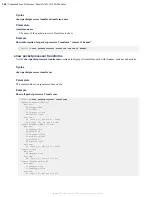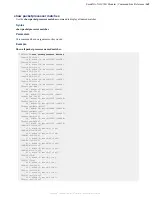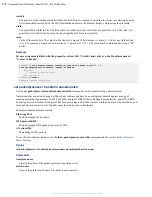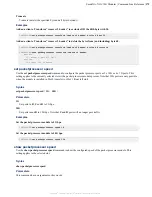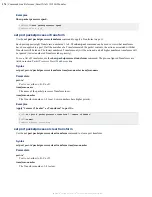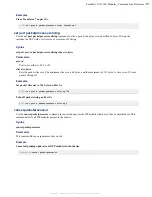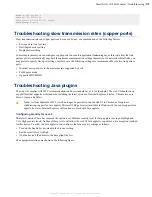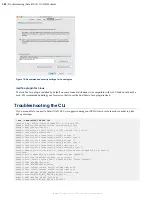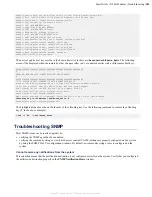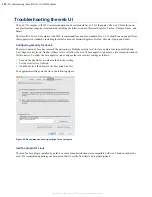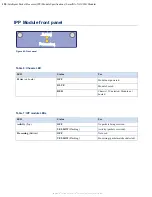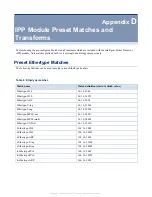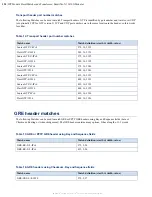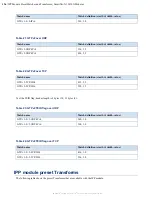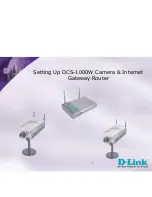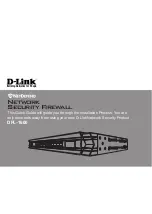
SmartNA-X 1G/10G Modular | Troubleshooting |
181
SmartNA-X
™
1G/10G User Guide 1.4
©
2015 Network Critical Solutions Limited
debug1: Server host key: RSA 52:5a:1d:41:2c:77:de:3f:30:d1:b8:d2:6e:e4:bb:c1
debug1: Host '192.168.254.100' is known and matches the RSA host key.
debug1: Found key in /home/user/.ssh/known_hosts:2
debug1: ssh_rsa_verify: signature correct
debug1: SSH2_MSG_NEWKEYS sent
debug1: expecting SSH2_MSG_NEWKEYS
debug1: SSH2_MSG_NEWKEYS received
debug1: Roaming not allowed by server
debug1: SSH2_MSG_SERVICE_REQUEST sent
debug1: SSH2_MSG_SERVICE_ACCEPT received
debug1: Authentications that can continue: publickey,password
debug1: Next authentication method: publickey
debug1: Trying private key: /home/user/.ssh/id_rsa
debug1: Trying private key: /home/user/.ssh/id_dsa
debug1: Trying private key: /home/user/.ssh/id_ecdsa
debug1: Next authentication method: password
[email protected]'s password
The device's public host key must be in the known hosts list, in this case
/home/user/.ssh/known_hosts
. The following
error will be displayed when the remote host key changes (after you’ve connected earlier with a valid remote host key):
@@@@@@@@@@@@@@@@@@@@@@@@@@@@@@@@@@@@@@@@@@@@@@@@@@@@@@@@@@@
@
WARNING: REMOTE HOST IDENTIFICATION HAS CHANGED!
@
@@@@@@@@@@@@@@@@@@@@@@@@@@@@@@@@@@@@@@@@@@@@@@@@@@@@@@@@@@@
IT IS POSSIBLE THAT SOMEONE IS DOING SOMETHING NASTY!
Someone could be eavesdropping on you right now (man-in-the-middle attack)!
It is also possible that the RSA host key has just been changed.
The fingerprint for the RSA key sent by the remote host is
52:5a:1d:41:2c:77:de:3f:30:d1:b8:d2:6e:e4:bb:c1.
Please contact your system administrator.
Add correct host key in /home/user/.ssh/known_hosts to get rid of this message.
Offending key in /home/user/.ssh/known_hosts: 8
Permission denied (publickey,password).
The highlighted line above shows the identity of the offending key. Use the following command to remove the offending
key ('8' in the above example):
#
sed -i '8d' ~/.ssh/known_hosts
Troubleshooting SNMP
Most SNMP issues can be resolved quickly by:
• verifying the SNMP agent has been enabled
• verifying the community string or view-based access control (VACM) settings are properly configured on the system
by using the SNMP Web UI configuration windows. By default, no community string or user is configured on the
system
Cannot receive any notifications from the system
This condition means that the notification destination is not configured correctly on the system. Verify that you configured
the notification destination properly in the
SNMP Notification Hosts
window.

